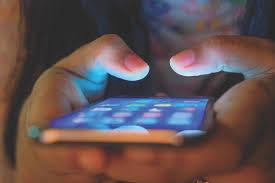Quick questions: How many times did you pick up your phone today? Or how many times did you get distracted while doing something?
213
3.06K reads
CURATED FROM
IDEAS CURATED BY
A learner | Writer of Melva's Note on Substack | High curiosity about psychology and human development.
Our bond with our digital devices is unbreakable; we’re jumping in front of screens, from one app to another. This behavior shortened our attention spans, and we feel more stressed than ever, There are tons of notifications dropping every few minutes, and companies are preying on our most primitive desires. Yet, disconnecting from this phenomenon is impossible - at least if we want to keep our job or have a social life. Gloria Mark, Ph.D., breaks down how the digital age has changed the nature of our attention based on her research on behavioral science.
“
The idea is part of this collection:
Learn more about corporateculture with this collection
The benefits of a bedtime routine
How to improve your sleep quality
How to create a relaxing sleep environment
Related collections
Similar ideas
Turn off your distractors
Don’t check email. Don’t pick up your phone or text.
It’s so easy to spend an hour messaging or checking Instagram, so don’t even give yourself the opportunity to get distracted.
Being super connected
Modern technology has evolved to exploit our urgency addiction. You can be distracted simply by hearing or feeling your phone vibrate, even if you don't pick it up.
- Try putting your phone out of sight (and touch) for uninterrupted productivity.
- Turn off all your notifica...
Do's and Don'ts for quick check-ins
DO:
- Establish a set schedule for everyone in the team to participate for quick updates and feedback.
- Ask the important questions like: What did you do yesterday? What will you do today? Is anything in your way?
DON'T:
-
...
Read & Learn
20x Faster
without
deepstash
with
deepstash
with
deepstash
Personalized microlearning
—
100+ Learning Journeys
—
Access to 200,000+ ideas
—
Access to the mobile app
—
Unlimited idea saving
—
—
Unlimited history
—
—
Unlimited listening to ideas
—
—
Downloading & offline access
—
—
Supercharge your mind with one idea per day
Enter your email and spend 1 minute every day to learn something new.
I agree to receive email updates

